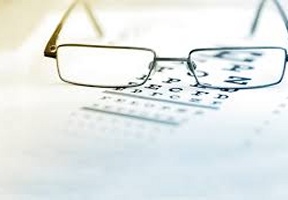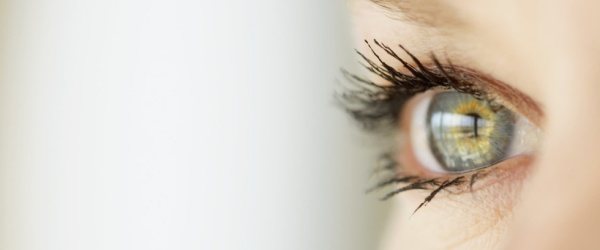By: Ashmar Mandou
 Americans may face a public health crisis unless drastic changes are made to secure healthy eyesight. According to the Centers for Disease Control and Prevention (CDC), nearly 61 million American adults are at risk for severe loss and only 50 percent visited an eye-care professional. Uncorrectable vision impairment currently affects about eight to 16 million people in the United States, and that number may double by 2050, according to the report. We sought the advice of two ophthalmologists for Medical Corner, this month to raise the awareness of preserving our eyesight.
Americans may face a public health crisis unless drastic changes are made to secure healthy eyesight. According to the Centers for Disease Control and Prevention (CDC), nearly 61 million American adults are at risk for severe loss and only 50 percent visited an eye-care professional. Uncorrectable vision impairment currently affects about eight to 16 million people in the United States, and that number may double by 2050, according to the report. We sought the advice of two ophthalmologists for Medical Corner, this month to raise the awareness of preserving our eyesight.
Meenakshi Chaku, MD, MS, Loyola Medicine Ophthalmologist and Director of the Glaucoma Service
As we focus on Eye Health Awareness in July, how can we insure good eyesight in a time when most of us spend countless hours in front of a computer screen or on our phones?
Screen time is part of everyone’s daily routine, but it can cause eye strain. To decrease eye strain from computers or phones, shift your focus and look away from your screen every so often to a distant object. You can also adjust the lighting and contrast on your phone to make it easier to see. Often with the constant focusing on screens, we blink less. This can cause dry eye symptoms, including blurry vision, foreign body or scratchy sensation, tearing and redness. Using artificial tears — especially when doing focused work on the computer or being on the phone — can help alleviate these symptoms. Having a humidifier in the home and office can also decrease dry eye symptoms. Excessive contact lens use also can worsen dry eye symptoms. So take regular contact lens holidays and alternate with your glasses.
How often should one schedule an eye exam?
If you are a healthy adult with no problems with your vision, having your eyes evaluated by age 40 as a baseline exam is important. However, if your primary care physician has identified certain medical diseases such as diabetes, you would need regular eye exams before age 40. Discuss with your primary care physician if you need more regular eye exams, depending on your medical history.
Talk to me about the importance of knowing your family’s eye health history?
It is important to know your family eye health history. Some eye diseases can be inherited. Depending on the severity of the disease, identifying a family history can be important in screening and prevention of vision loss and other medical problems.
How can we improve our eye health naturally?
Many people ask what they can do to improve their eye health. In general, healthy habits have been shown to maintain eye health. These include eating a balanced diet with lots of green vegetables, maintaining a healthy lifestyle and having regular exams with your primary care doctor. It is very important to see an eye doctor for an exam when you notice a problem or when your doctor advises it.
What tips do you follow, personally to maintain healthy eyesight?
I try and maintain a healthy lifestyle and keep up with my regular health maintenance.

Dr. Jocelyn Rowe, Ophthalmologist at Sinai Health System
As we focus on Eye Health Awareness in July, how can we insure good eyesight in a time when most of us spend countless hours in front of a computer screen or on our phones?
Common symptoms of prolonged screen time include a feeling of eye strain or fatigue, blurring of vision, and dry eyes. When using a screen of any kind it is a good idea to take frequent breaks from looking at the screen. In addition, one can decrease the screen brightness and have artificial lubricating drops available for dry eye sensation. Many people will notice that the print on the computer screen and cell phone screen may become blurry with aging. These patients may require an eye exam for glasses to improve the ability to read clearly while on the computer and cell phone.
How often should one schedule an eye exam?
The American Academy of Ophthalmology recommends that you get a baseline eye exam at age 40. However, if there is a family history of eye disease, or if you have medical problems such as diabetes, you should not wait until age 40 to schedule an eye exam. If you are age 65 or older, you should have your eyes checked every one to two years to evaluate the eyes for age related eye diseases such as macular degeneration, glaucoma, or cataracts.
Talk to me about the importance of knowing your family’s eye health history?
Certain eye diseases can be hereditary. Glaucoma is one of the most common hereditary eye diseases. You are more likely to be affected by glaucoma if a parent or sibling has been diagnosed with this disease. Unfortunately, many eye diseases will go undetected without an eye exam because they lack symptoms of pain or noticeably blurred vision. Knowing your family’s eye health history is important so that you can schedule and eye examination to look for early signs of disease. The earlier a disease is found and treated, the better the outcomes tend to be.
How can we improve our eye health naturally?
The same things that keep your body healthy will promote good eye health. Follow a diet that is well balanced and full of fruits and vegetables and adhere to an exercise routine to keep weight, blood pressure and blood sugar controlled. In addition to this, the use of sunglasses with UV protection is important when outdoors. When performing high risk activities, such as working with power tools, or working with sharp objects in the garden or lawn, it is necessary to use protective eye wear.
What tips do you follow, personally to maintain healthy eyesight?
I adhere to a well-balanced diet and consistent exercise routine. I wear UV protecting sunglasses when outdoors. I am a contact lens wearer as well, and I ensure proper contact lens care to prevent contact lens related sensitivities or infections. This means I never sleep in my contact lenses, use proper cleaning solution to clean the lenses, and try not to wear them more than 8-12 hours a day.









